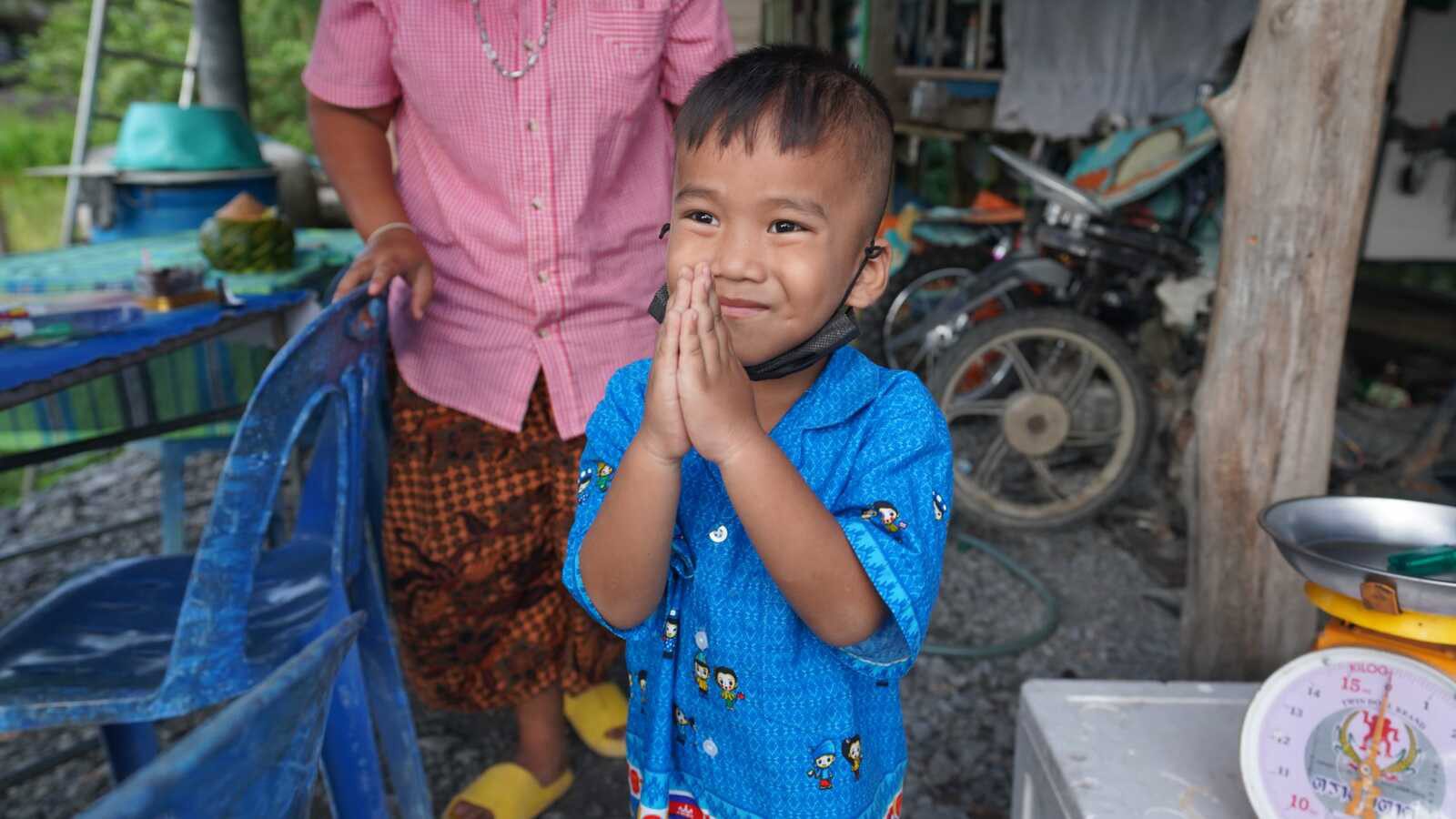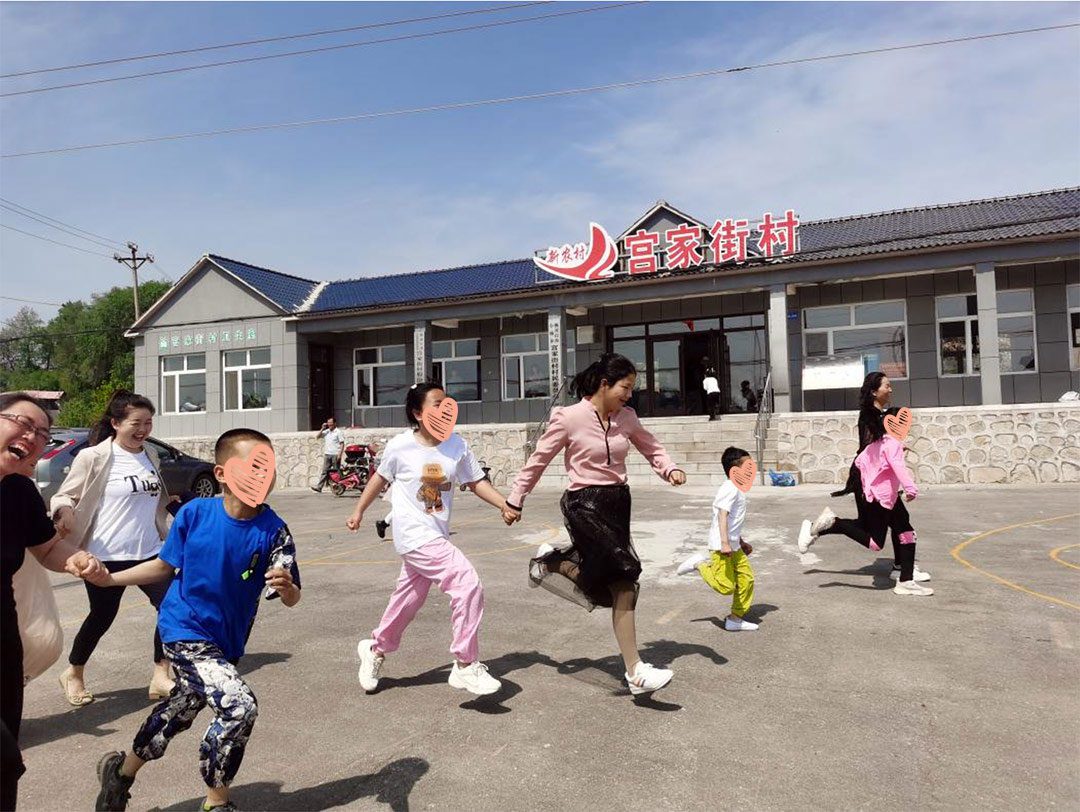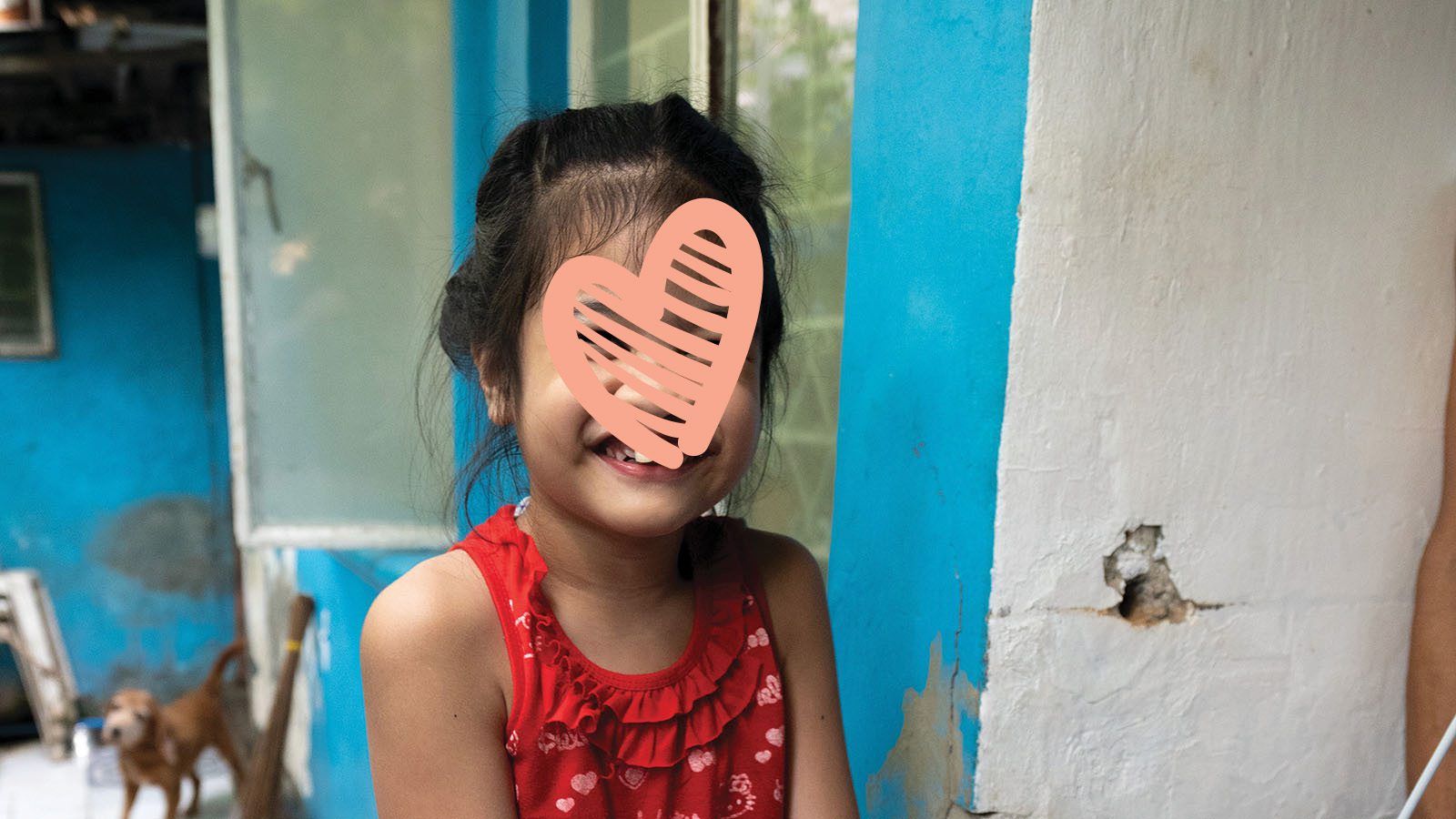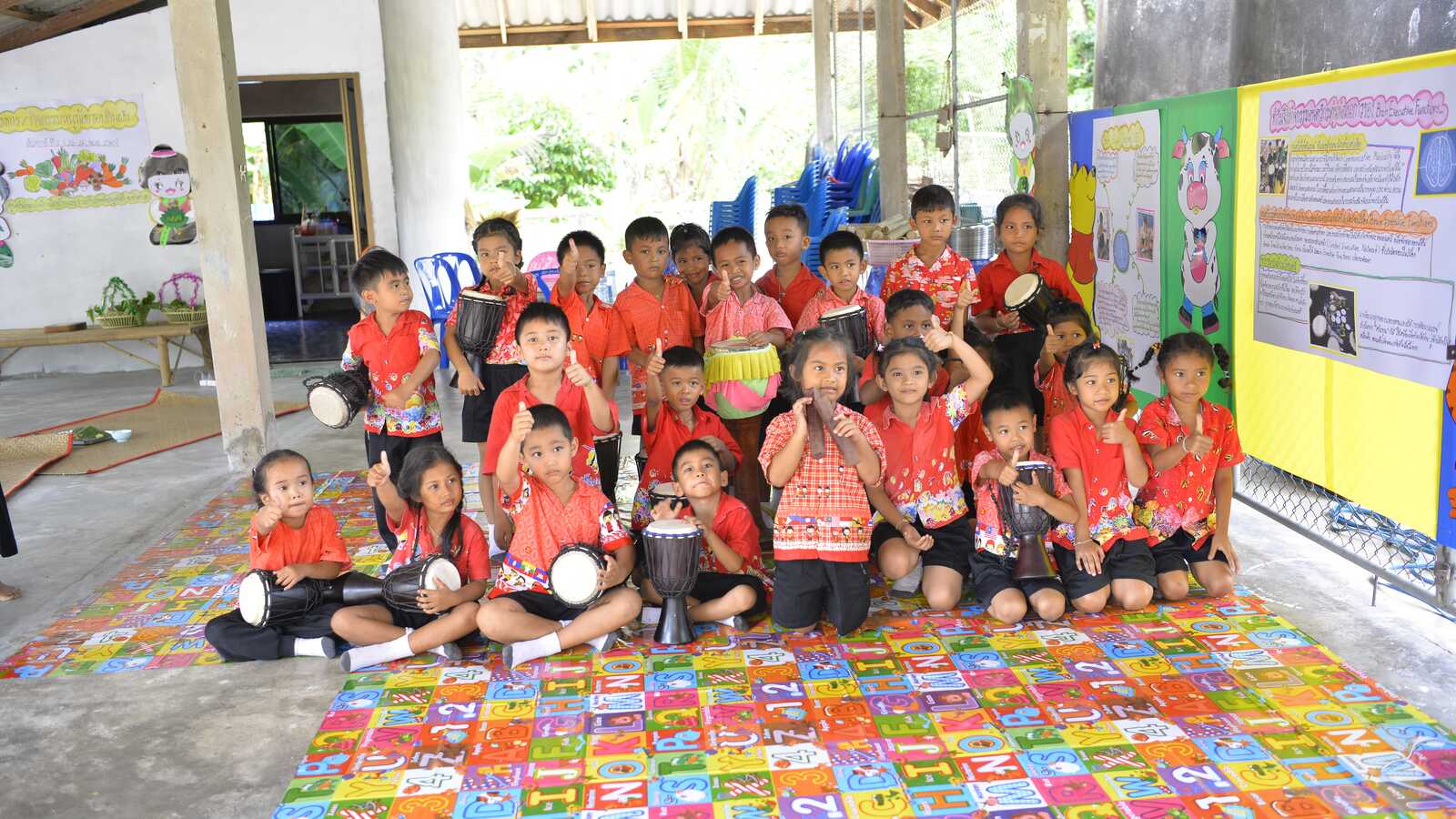Where Holt works in southern Thailand, children are at high risk of dropping out of school early, abusing drugs and becoming teen parents. But with the support of Holt sponsors and donors, Holt’s local partner is empowering families to protect and provide for their children — and keep them on the path to graduation.
The sun is low in the sky as we drive the narrow road that curves through the small fishing village where 4-year-old Sunan and his great-grandma, Kamala, live in southern Thailand. On either side of the road stand waist-high fields of rice the almost-neon green color of spring shoots. The roadside is dotted with houses made of wood or stone — many on stilts, some with longtail boats propped out front. It’s August — the rainy season in Thailand — and the sky looks like it’s about to burst into a summer storm.
When we arrive at Kamala and Sunan’s home, it’s clear they have been waiting for us — with half-coconuts full of Kamala’s home-made coconut jelly set on a table out front. Kamala cares for three of her great-grandchildren — Sunan, his 14-year-old cousin and his baby cousin, whose first birthday they are celebrating today.
Sunan has lived with his great-grandma since his father went to prison for drug trafficking, an issue that plagues this coastal community. His mom couldn’t provide for him so she left him with Kamala, knowing he would be in good care. When Holt’s partner staff in Thailand learned about Sunan, he was still just a baby — and Kamala needed help affording the high cost of infant formula. Holt donors made it possible for our partner staff to provide free boxes of formula to Kamala, ensuring she could meet Sunan’s nutritional needs. Seeing they needed additional help, Holt’s local partner then enrolled Sunan in Holt’s child sponsorship program — matching him with a sponsor in the U.S. who would provide monthly support, and help him thrive in his great-grandma’s care.
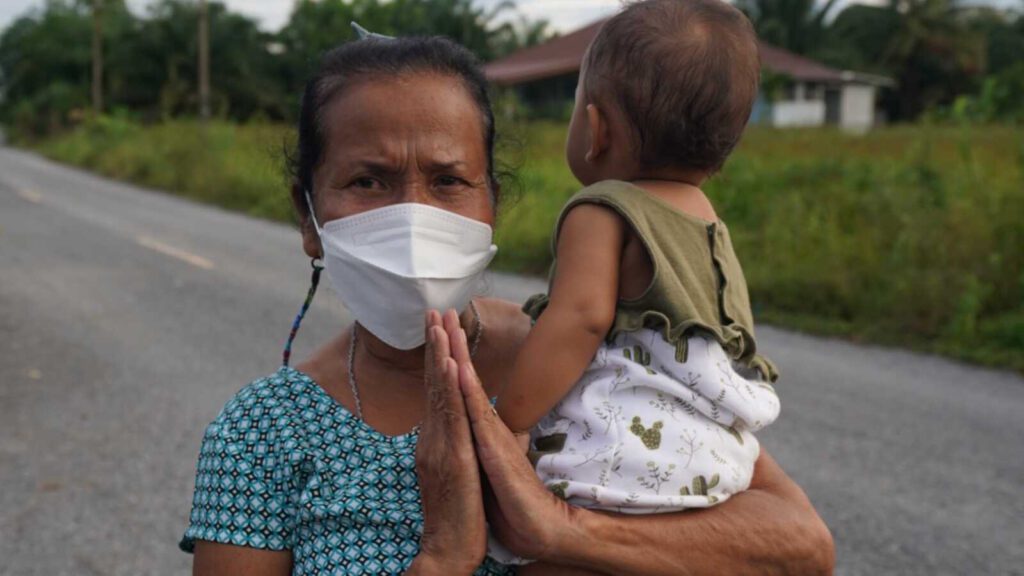
At 65, Kamala seems tired, with a furrow in her brow. Covid is still a risk in Thailand, and she wears a mask that covers most of her face. But she is warm and generous with us — urging us to try her home-made jelly and encouraging us to hold her great-granddaughter. Caring for children at her age is taxing, and she is grateful for the Holt sponsors who help provide school supplies, clothing, food and other basic needs.
The impact of sponsorship is also evident as we interact with Sunan and his cousins. He smiles and laughs as he plays with a toy car and snacks on coconut jelly, his eyes bright and joyful and his smile warm and engaging. He is clearly very healthy and very well loved.
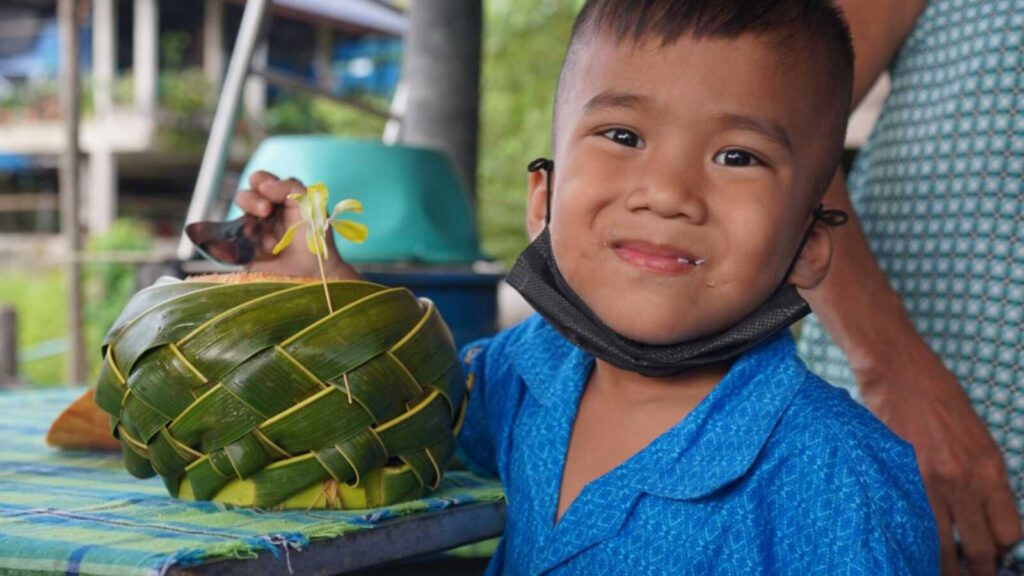
But the monthly support of a sponsor is not the only way that Holt’s partner staff in southern Thailand has helped Kamala provide for Sunan and her other grandchildren. As in many of the countries where Holt works, sponsors and donors also support programs that help families grow their income — and ultimately help them become stable, self-reliant and equipped to independently care for their children.
How Sponsors Help Children in Southern Thailand
In Thailand, Holt’s local partner, Holt Sahathai Foundation, has developed robust services to strengthen and empower families who are struggling to care for their children. In this region of southern Thailand, the need for these services has become greater than ever over the past 10-15 years as commercial fishing has devastated the local economy. Today, this community struggles with poverty, drug use, and high rates of teen pregnancy and children dropping out of school early. Over the past few years, the Covid-19 pandemic and global inflation have only made the situation worse — with higher rates of unemployment and an increased cost of living.
As HSF’s social services director, Goranid “Tuk” Sudmee, explains it, “People need to work longer hours to afford food and families’ needs, so they use drugs — [mostly methamphetamines] — to work longer hours.”
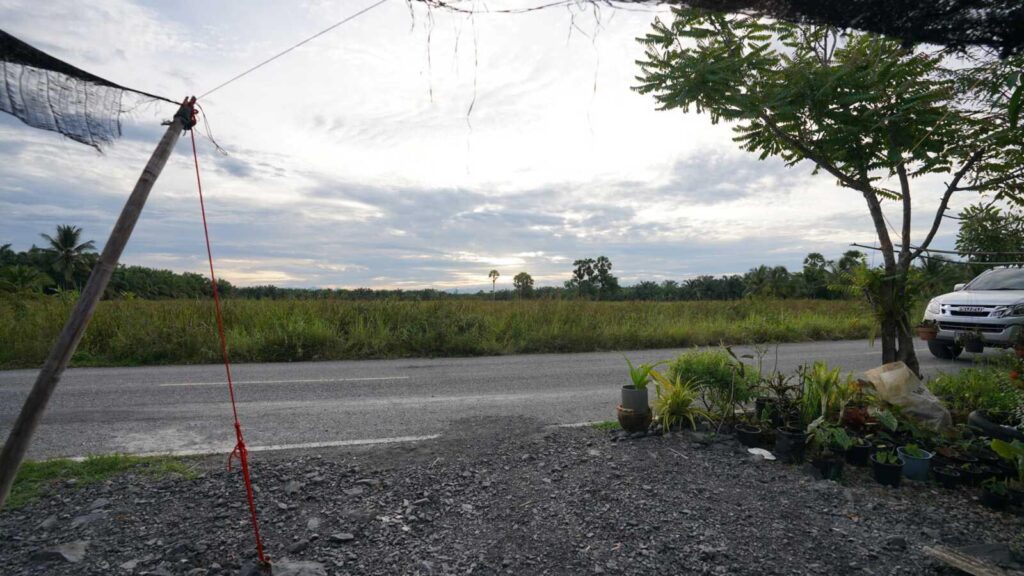
Ten years ago, a tablet of meth cost about 250 Baht, Tuk says. But with an influx of the drug imported from neighboring countries, a single tablet now costs about 50-60 Baht, or about $1.5 a pill. With meth so cheap and easy to get, the drug has become especially pervasive among local fisherman who use it to work longer shifts and hopefully catch more fish from the depleted local waters.
With so many adults using drugs, the children living in this community are vulnerable to falling into the same pattern of using drugs, dropping out of school early, and becoming teen parents. Heartbreakingly, many babies born to these teen parents are also born addicted to drugs. And it’s not just teenagers.
“Teen moms and women over 30 get pregnant and use drugs,” Tuk says, adding that this is happening all over Thailand. “Half of children in HSF foster care are born to mothers on drugs.”
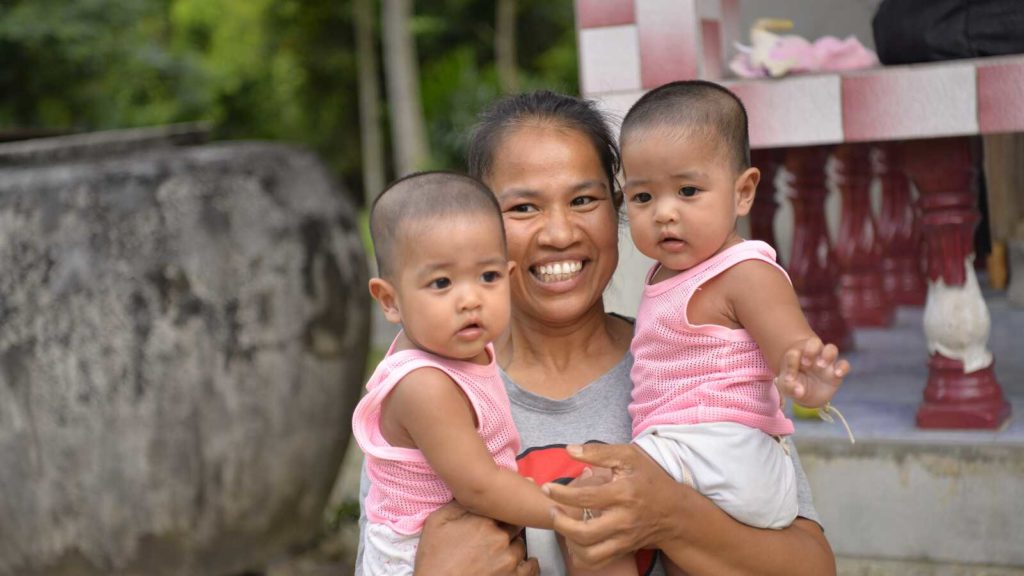
Learn more about Holt’s work in Thailand!
See how sponsors and donors create a brighter, more hopeful future for children and families in Thailand!
Keeping children in school is one way that HSF works to break this cycle. Currently, HSF has about 150 children in sponsorship in this region of southern Thailand. When children are enrolled in sponsorship, they are far more likely to finish school – and in recent years, a handful have even gone on to university.
When children aren’t in sponsorship, many drop out before they reach high school.
“Most kids drop out in eighth or ninth grade,” Tuk says. “HSF works hard to prevent them from dropping out.”
Since so few parents in this community have graduated school themselves, few children have examples within their family of how education can change their lives. But HSF social workers counsel both children and their families on the importance of education, and often connect older students with adults who can act as role models for them. If a student is struggling in school, their social worker will provide one-on-one coaching and support.
They try to build a relationship of trust where they really listen to the children, Tuk says of HSF social workers, and motivate them by emphasizing the opportunities an education can open up for them.
Matching children with child sponsors is another effective strategy for keeping them on a good path. Sponsors help cover the cost of uniforms, school supplies, transportation to and from school, and a small allowance to meet unidentified needs. For children in sponsorship, HSF allies with community leaders, teachers and the children’s families to help guide and protect them. But with so many parents experiencing addiction, and many in and out of prison, HSF has to look to other trusted adults in their lives — in many cases, grandparents or other relatives.
“Kids in sponsorship are at high risk of getting into drugs,” Tuk says. “That’s why we work with the grandparents to help protect them.”
Through group workshops and one-on-one counseling, HSF social workers empower caregivers to become a powerful, positive and consistent presence in the children’s lives. As Tuk says, they encourage these grandparents and other relatives to be “consistent, warm and emotionally responsive” to the children in their care.
“[HSF also] provides fun, happy activities such as camps and clubs to develop the children’s life skills,” Tuk says. With the support of sponsors and donors, HSF will host events such as New Year’s parties where families can cook together — or coordinate fun field trips to the zoo and other places. Whenever possible, they engage the children’s caregivers in these activities, which helps strengthen their bond.
Job Skills Training Empowers Families to Provide for Children
When HSF staff met Kamala three years ago, they saw how much she loved and cared for her grandchildren. But they also saw that she struggled to provide for them on the low daily wage she earned as a cook. Together, they began exploring ways to help her grow her income so that she could better provide for her grandchildren and also be home with them more — empowering her to provide more attentive care, and keep a more watchful eye.
Our partner soon learned that Kamala had a unique, and marketable, skill.
“She had the skill to pickle fish,” Tuk says. “HSF trained her how to do the business.”
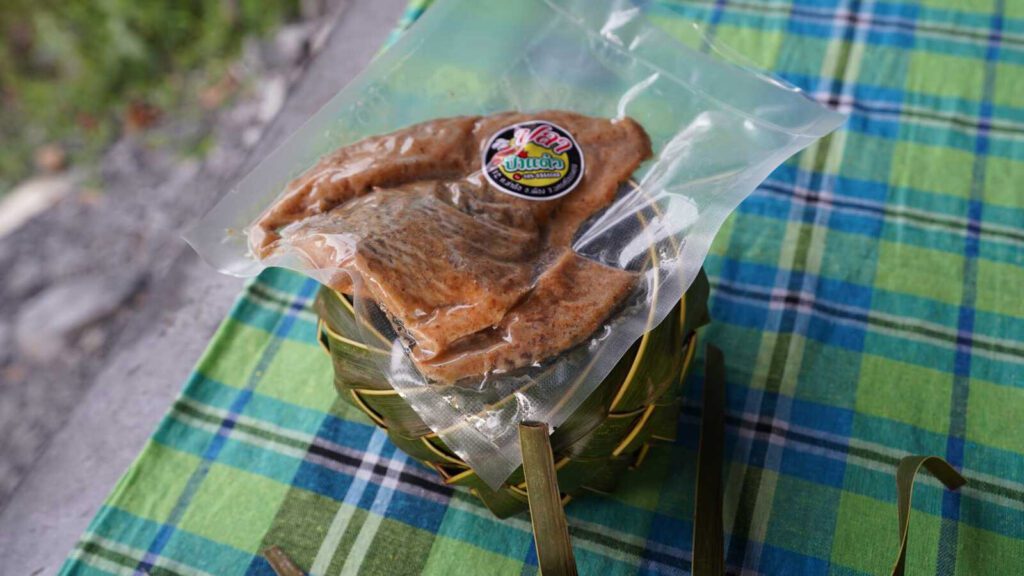
HSF social workers taught Kamala how to package the fish in shrink wrap, add an expiration date, and even helped her create a logo and sell her product online. After building her pickled fish business, Kamala expanded her product offering — and now sells her home-made coconut jelly as well. She earns about 5,000 Baht/month from her business, which is significantly more than she earned as a cook — and she has the added bonus of being home with Sunan and her other great-grandchildren while she works during the day.
Kamala is now a role model for other families who are struggling to provide for their children in her community. She is one of a little over 100 role model families that HSF and Holt sponsors have helped empower through job skills training, education, counseling, support groups, and other tools and resources.
Currently, HSF works with about 500 families. “Twenty of these families are so poor that they want to place their kids in the children’s home,” Tuk says. “We have to work with them very closely.”
While the government provides about 6,000 Baht, or $175, per year to help families living in poverty, HSF is the only organization in the community providing the kind of holistic support that families need to grow stable and self-reliant — and prevent them from placing their children in orphanages.
“It’s not just food support. It’s much more difficult,” Tuk says of HSF’s family strengthening model. “[Families] have to change their thinking to change their lives. That’s why it takes many years.”
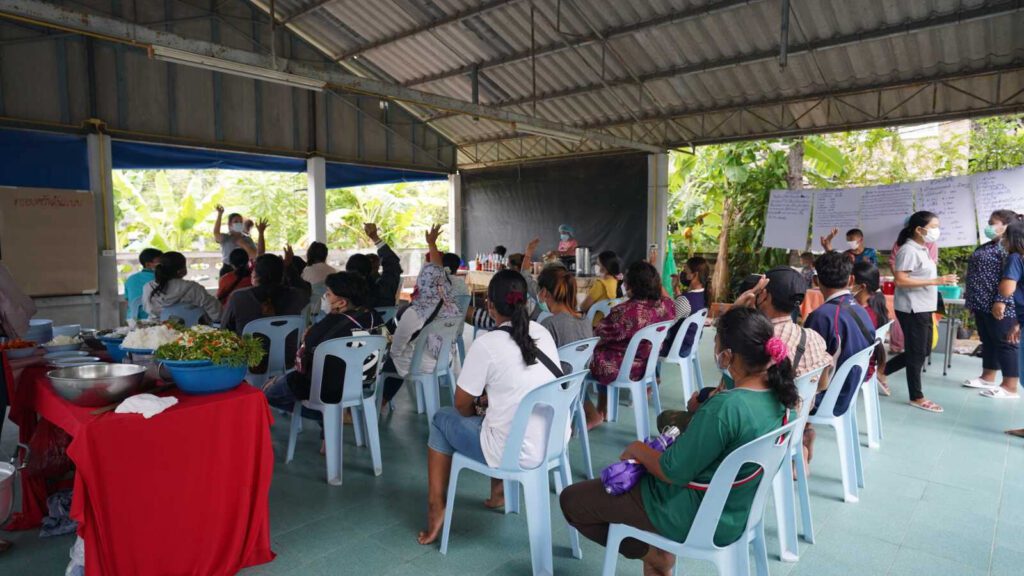
Ten years ago, Tuk says, most families could exit HSF’s family strengthening program — and most children could graduate from the sponsorship program — after about two to four years. With all of the support that children and families received, they would be able to reach a place of stability and self-reliance within that time. But now, because of the depressed economy, increased drug use and other social changes in this community, HSF social workers have to work with families for a much longer period of time before they can exit the program and independently provide for their children.
“Now it takes seven years or longer,” Tuk says, adding that HSF recently introduced a group activity to help kids and families develop self-esteem, focus on the future and avoid falling back into a harmful lifestyle.
But although it takes longer for families to overcome many of the challenges they face, one of the most effective ways HSF empowers families is through job skills training. While Kamala had a unique skill that she was able to build into a business, many families come to HSF hoping to learn skilled trades that will grow their family’s income — or provide a reliable alternative to fishing, working in construction or laboring in factories, many of which have relocated to neighboring countries in Southeast Asia where they can pay workers lower wages.
On a Friday afternoon in August, the HSF office is bustling with families who have journeyed here to attend HSF’s job fair and support group sessions. Inside, a group of women and children sit in a circle and share about their experiences as part of an HSF support group for single mothers. Outside, men and women visit different stations to learn about job training opportunities. The demonstrations are led by different HSF role models — parents who have learned a skill with the support of HSF and turned their skill into a thriving business. One role model demonstrates how she cuts and styles hair for a living. Another skillfully pours batter onto a hot burner and demonstrates how she makes savory crepes that she sells for 25 Baht a piece. Another has a row of syrups lined up, and mixes a variety of iced drinks for the attendees to try.
“They see they can make a living and can get a loan from HSF to start a small business,” Tuk says of the families attending the fair — many of them single mothers who have little to no income. To get financial support or a microloan funded by Holt sponsors and donors, they have to write a project proposal. Once their proposal is approved, they can get a zero-interest loan to purchase supplies they need to start their business or other items they need to improve their livelihoods.
Many families and single mothers who started a business with an HSF microloan are so grateful that they volunteer to teach others what they learned — including many of the role models leading demonstrations at the HSF job fair.
The woman who works as a hairstylist has four children. She is HIV-positive and first came to HSF for help in 2013. Today, two of her children are in college. She is so grateful for the help HSF gave her that she even invites families to her home to learn how to do what she does. Because of HSF’s job skills training, she was able to earn enough to support her four children, help them escape the cycle of poverty and drug abuse, and go on to lead successful, independent lives.
But none of HSF’s programs would be possible without the kind and generous support of Holt sponsors and donors.
As Tuk says, “Your kind support makes changes in these children and families’ lives — and helps them to help themselves.”
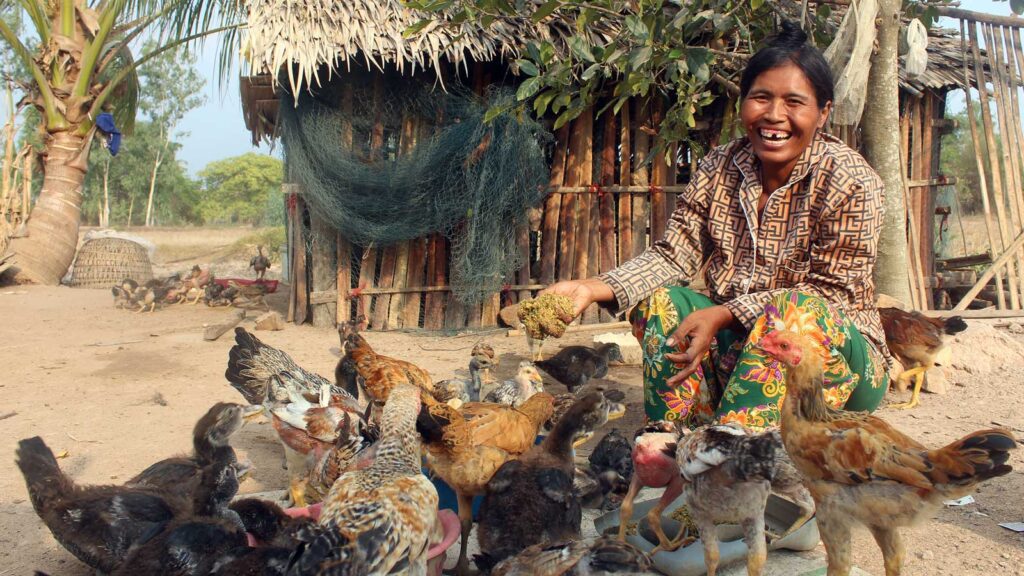
Lift a Mom Out of Poverty
When you give a gift of chickens, a garden or a sewing machine, you will bless a mom and her children.
